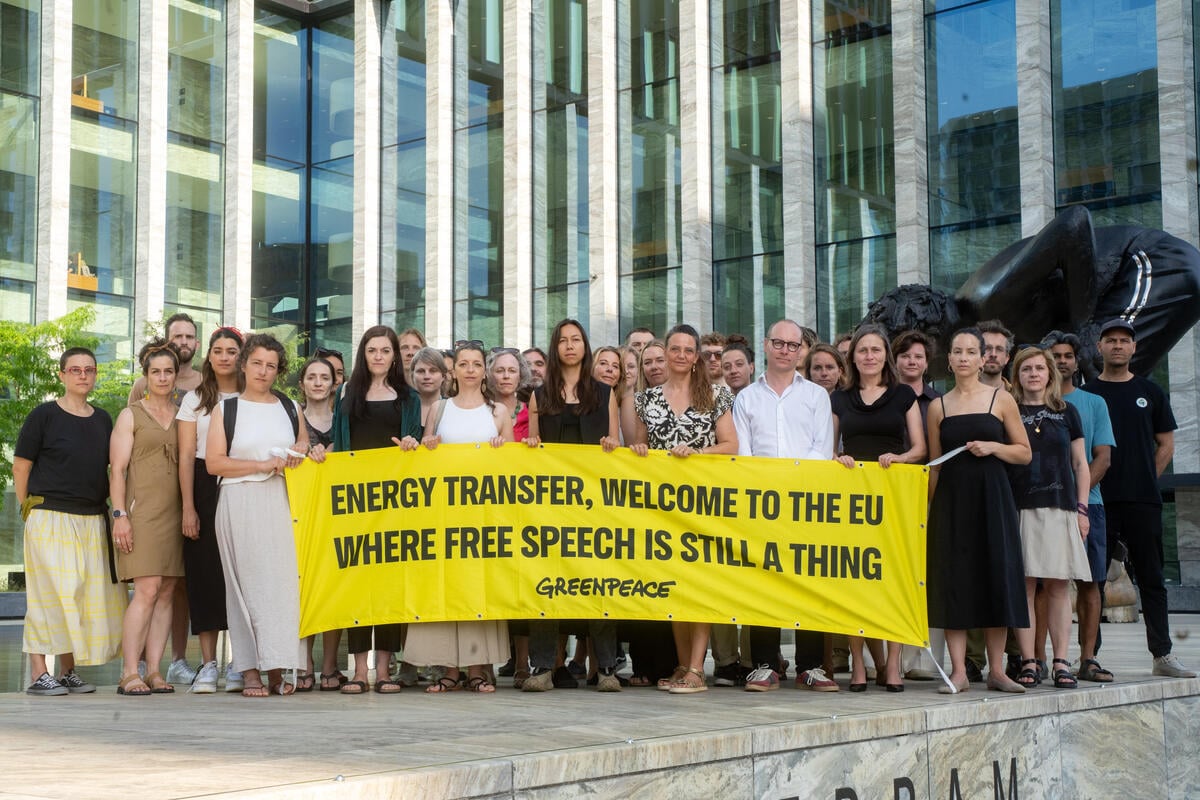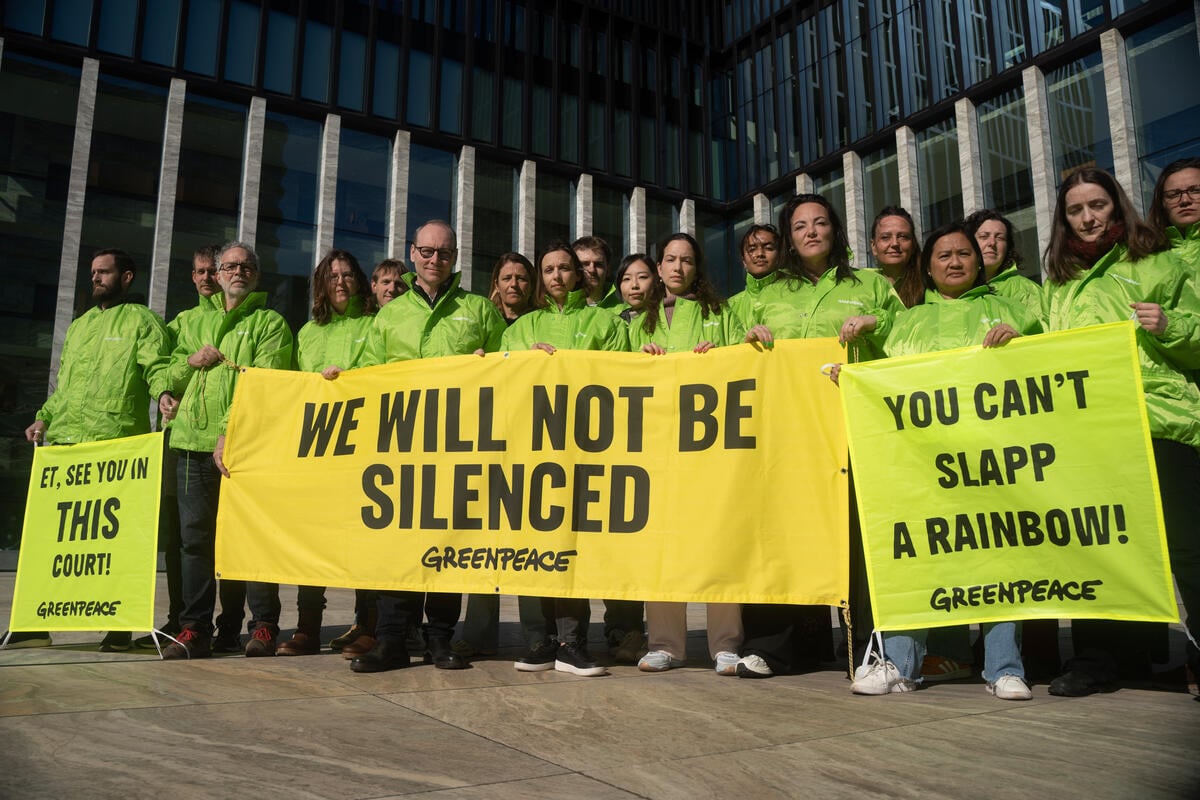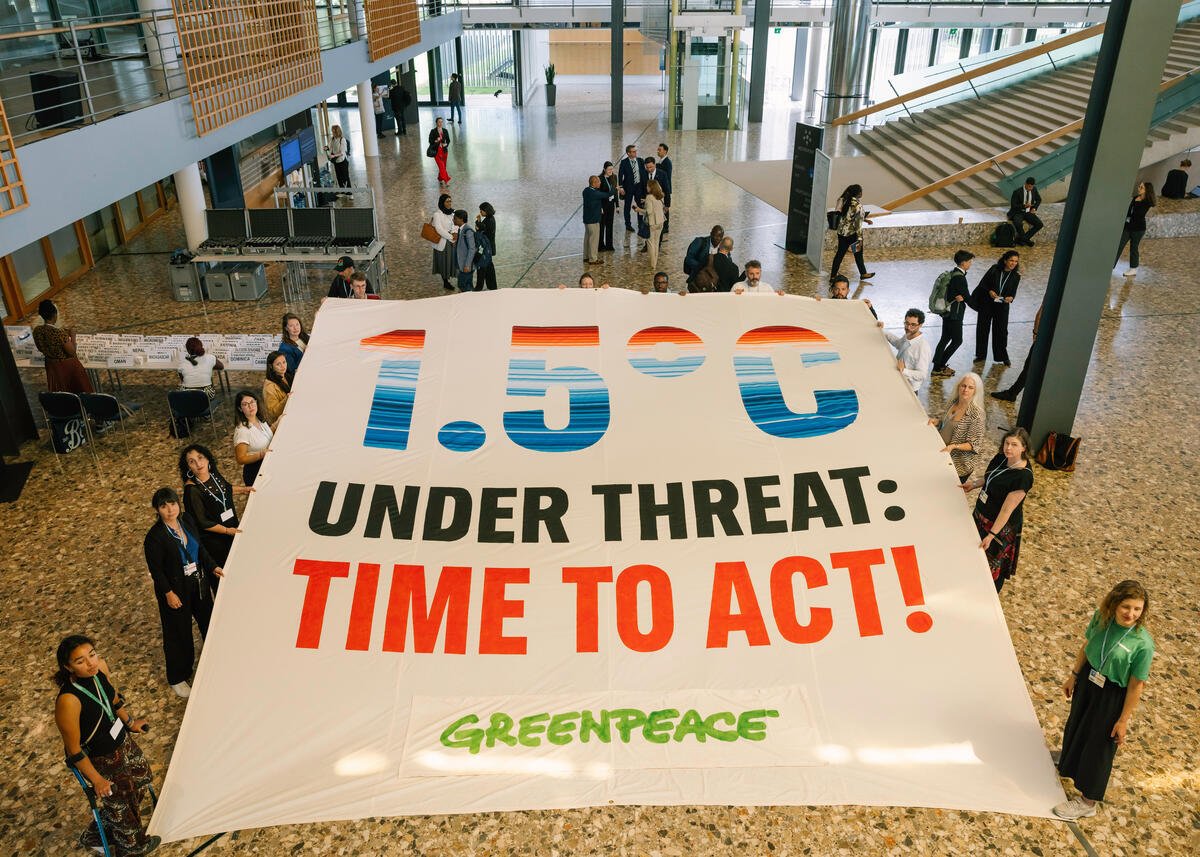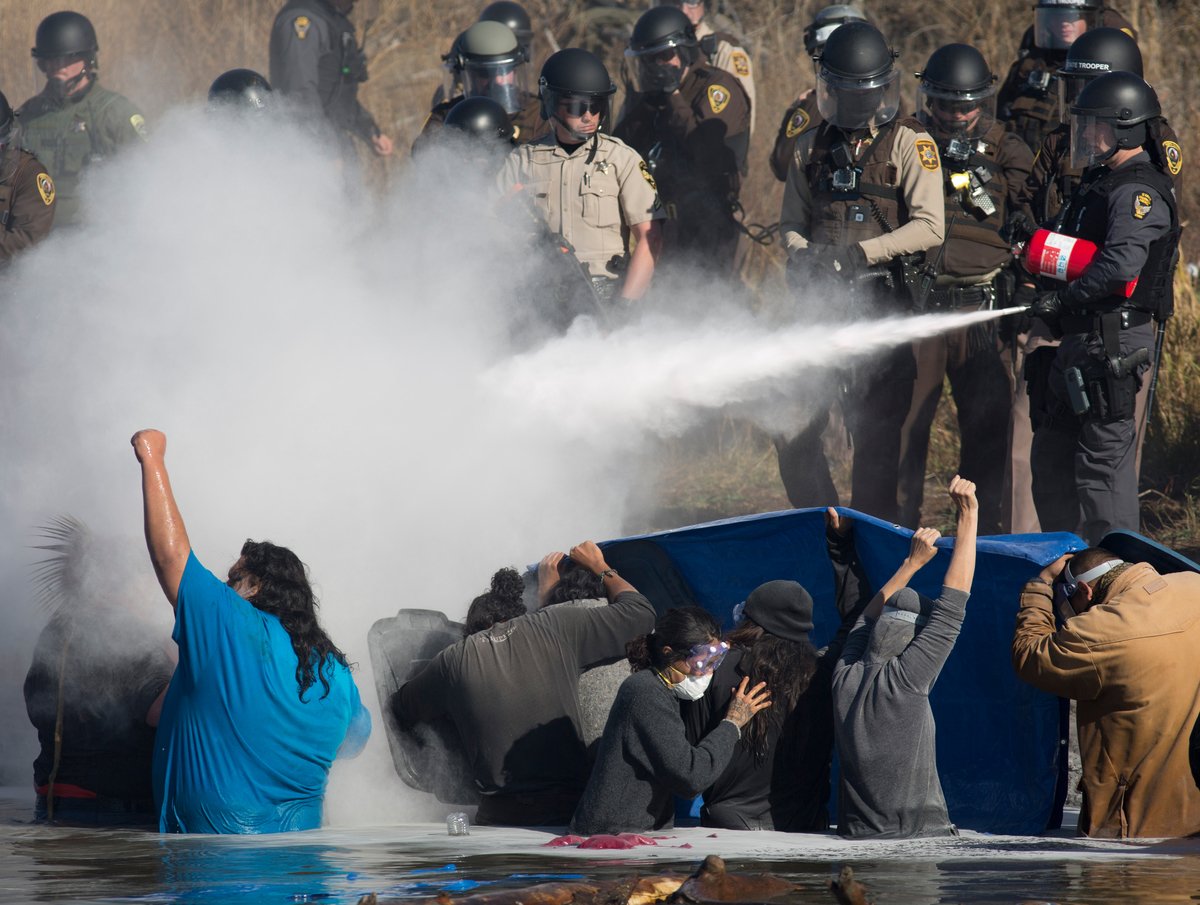
Unarmed, peaceful Water Protectors at Standing Rock were forcibly repelled with tear gas, pepper spray and rubber bullets.
Back in December 2014, US company Energy Transfer Partners (ETP) applied for permitting to begin construction on yet another oil project — the $3.78 billion Dakota Access pipeline (DAPL). The pipeline would carry crude oil from the Bakken shale oil field in the northern United States to an oil storage and transport facility more than 1,000 kilometres away.
Yet by the fall of 2016, the controversial project had gained international attention for the egregious and inappropriate tactics ETP used against opponents of DAPL at Standing Rock.
To say I was stunned by what I saw unfold at Standing Rock would be an understatement. Witnessing the tactics ETP was willing to utilize to protect its profits was unprecedented in scope — Water Protectors and allies were subjected to physical harm and unending harassment, not to mention the profound threat and subsequent consequences this pipeline leveled on sacred land. And that was only the beginning. ETP went on to retain private security firms now notorious for violent practices and issue a flood of legal tactics and lobbying efforts aimed at restricting free speech.
It was a breathtaking affront to the fundamental rights of all involved, and the world noticed.
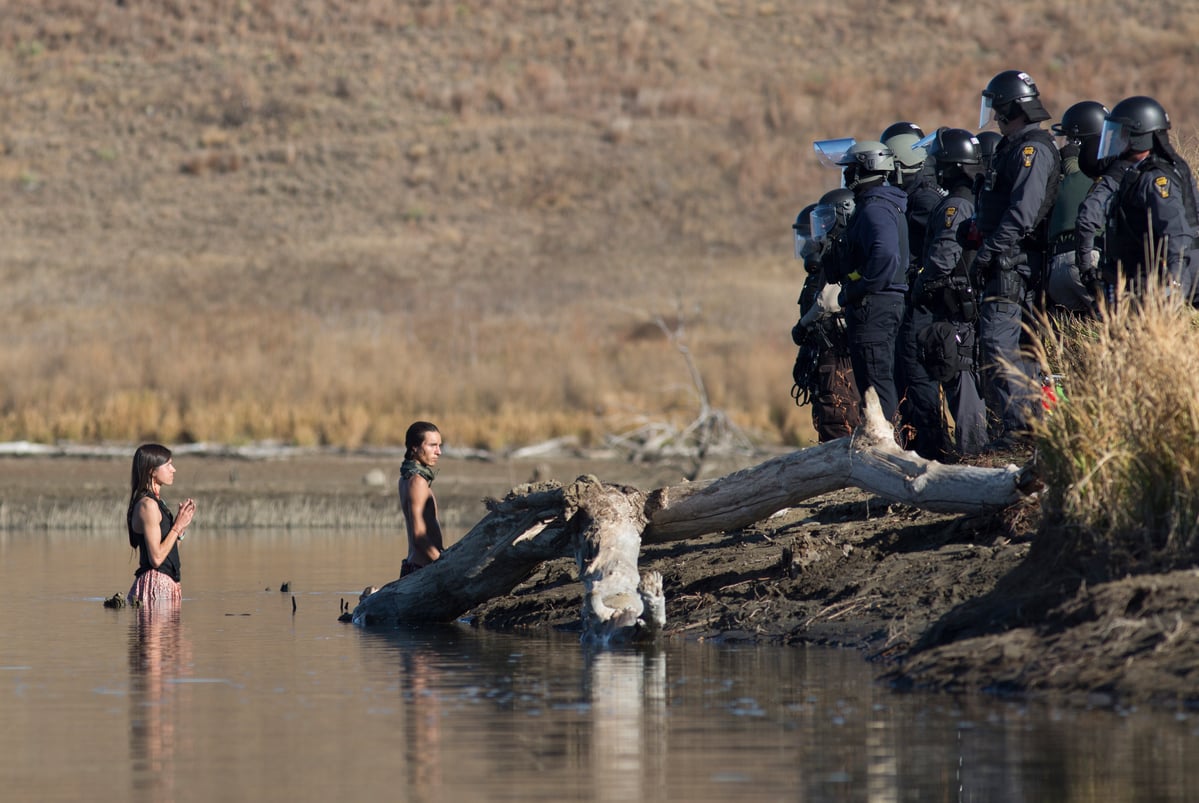
During the height of demonstrations against DAPL, Water Protectors engineered a makeshift pedestrian bridge trying to access ancestral burial grounds that would likely be damaged by the pipeline. They were turned back by heavily armed law enforcement officials.
But if you thought the global backlash that developed against these tactics at Standing Rock stopped ETP, think again. ETP has not only continued to apply many of the same dirty methods, but it has doubled down on its unethical practices in numerous other pipeline projects across the US.
In a new Greenpeace USA report “Too Far, Too Often”, we detail ETP’s extreme and unethical tactics used against those that stand up to its pipelines. If one thing is clear, it’s that ETP will stop at nothing to get its pipelines built. If as a corporation, your overarching approach to profit protection is to hire TigerSwan — a US military contractor — and allow them free reign to use military-style counterterrorism tactics against Water Protectors and allies at Standing Rock, it’s obvious that respecting human rights is not your number one concern.
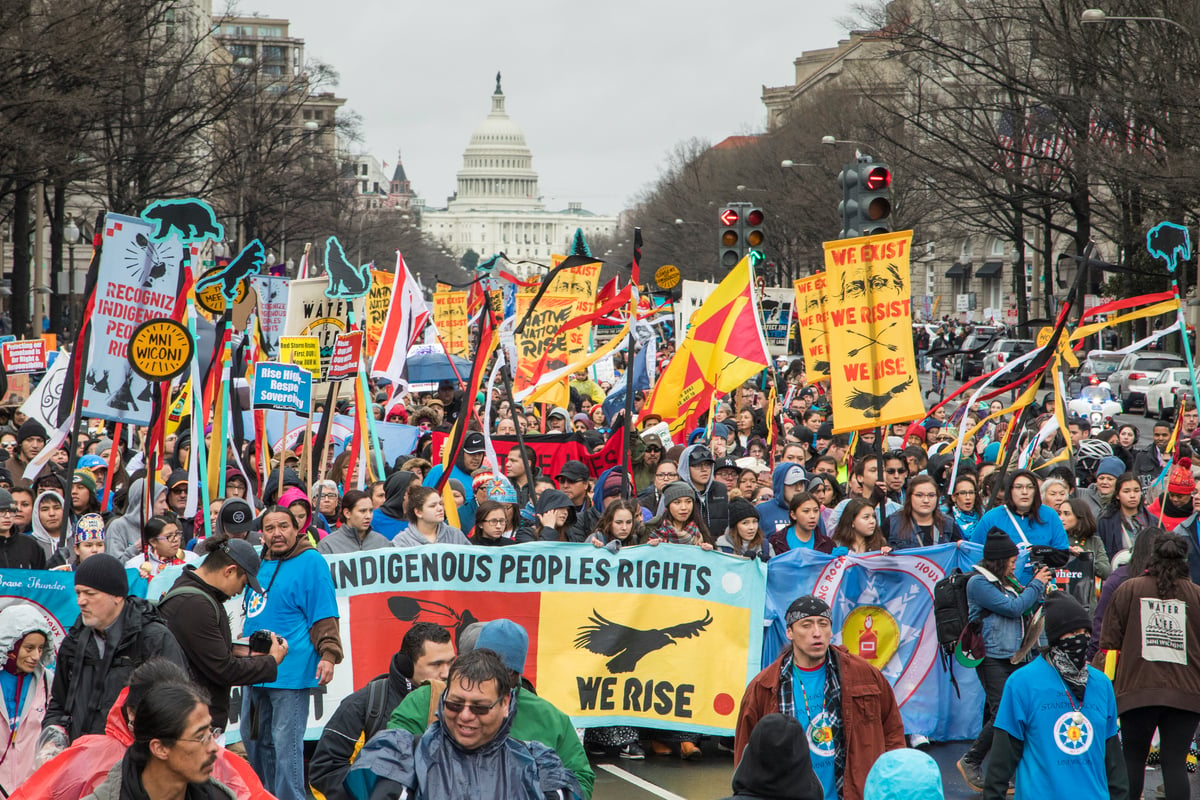
Thousands marched through Washington, DC in solidarity with Native Nations resisting the construction of the Dakota Access pipeline.
This report is another reminder of why we must put a stop to these pipelines and continue to push back against one of the biggest factors that keep companies like ETP in play — money. I have a message for the institutions that uphold financial support to ETP and, by extension, its unethical methods: you are associated with this mess if your services provide the financial backing that allows these practices to continue. You have a choice to make, and it should be an obvious one.
ETP’s inability or unwillingness to learn the necessary lessons from DAPL could bring even more trouble for banks. And while ETP has shown little sign of changing its ways, the institutions that offer financing and loans to the company can.
Here are just some of the dirty tactics from ETP’s playbook that we uncovered. Learn more in the full report.
Violating Indigenous sovereignty and rights
- DAPL was approved without meeting international standards of free, prior and informed consent of the Standing Rock Sioux Tribe.
- The company ignored calls for a voluntary halt in construction by the US Department of Justice, the US Department of the Interior and the US Army as controversy and questions around appropriate levels of assessment and due diligence arose in early fall 2016.
- Dakota Access bulldozed an area of the pipeline corridor filled with Tribal sacred sites and burials. Documented in a UN report, a Sioux elder and cultural leader reported damage to at least 380 cultural and sacred sites along the pipeline route.
Intimidation and threats to free speech
- Water Protectors and individuals opposing DAPL faced excessive force, arbitrary arrests and lawsuits.
- ETP and its related companies use SLAPP suits to attempt to silence and intimidate opposition. This includes suing the Standing Rock Sioux Tribal Chairman and Tribal Councilman and several others “seeking restraining orders and unspecified monetary damages.”
- After construction of DAPL was complete in fall 2017, ETP filed a $900 million SLAPP suit against Greenpeace entities, Banktrack and EarthFirst!, accusing the organisations of inciting and directing acts of “eco-terrorism.”
- Arbitrary arrests and anti-free-speech lawsuits have become more common in efforts to shut down pipeline opposition. However, ETP’s extreme use of litigation, including the use of RICO claims and high damages, could set a dangerous new precedent and have a chilling effect on the ability of individuals, communities and organisations to demonstrate opposition to future projects.
- Following the controversy around the Dakota Access Pipeline, a series of more than 60 bills were introduced across the United States restricting the right to protest and criminalizing protest, potentially deterring free speech activity. ETP has advocated for this legislation both on its own and through front groups representing the oil industry.
Military-style private security contractors
- ETP continues to work with private security companies, including TigerSwan, which used excessive force and military-style counterterrorism measures against Water Protectors and operated without a license in North Dakota during the events at Standing Rock.
- TigerSwan’s tactics have included spying, infiltration, providing daily briefings to police to instigate greater law enforcement response and gathering material for future lawsuits against environmental groups.
- Despite numerous controversies and criticism of TigerSwan’s operation and behavior, ETP continues to have ties with TigerSwan, which provides services on pipeline projects in other parts of the US, like the Mariner East 2 pipeline.
Seizing private property
- ETP and related companies are aggressively using US laws to seize private property in all of its current major pipeline projects.
- Private landowners are challenging the legality of the property seizure.
Spills, fines and safety concerns
- Pipelines operated by ETP and its related company Sunoco (and their subsidiaries) spilled hazardous liquids 527 times from 2002 to the end of 2017 — an average of one incident every 11 days.
- Sixty-seven of the spills were reported to have contaminated water, including 18 incidents that contaminated groundwater. More than 100 of the incidents involved 50 barrels or more. The spills caused an estimated $115 million in property damage.
- ETP has been subject to hundreds of enforcement actions and fined more than $355 million since 2000.
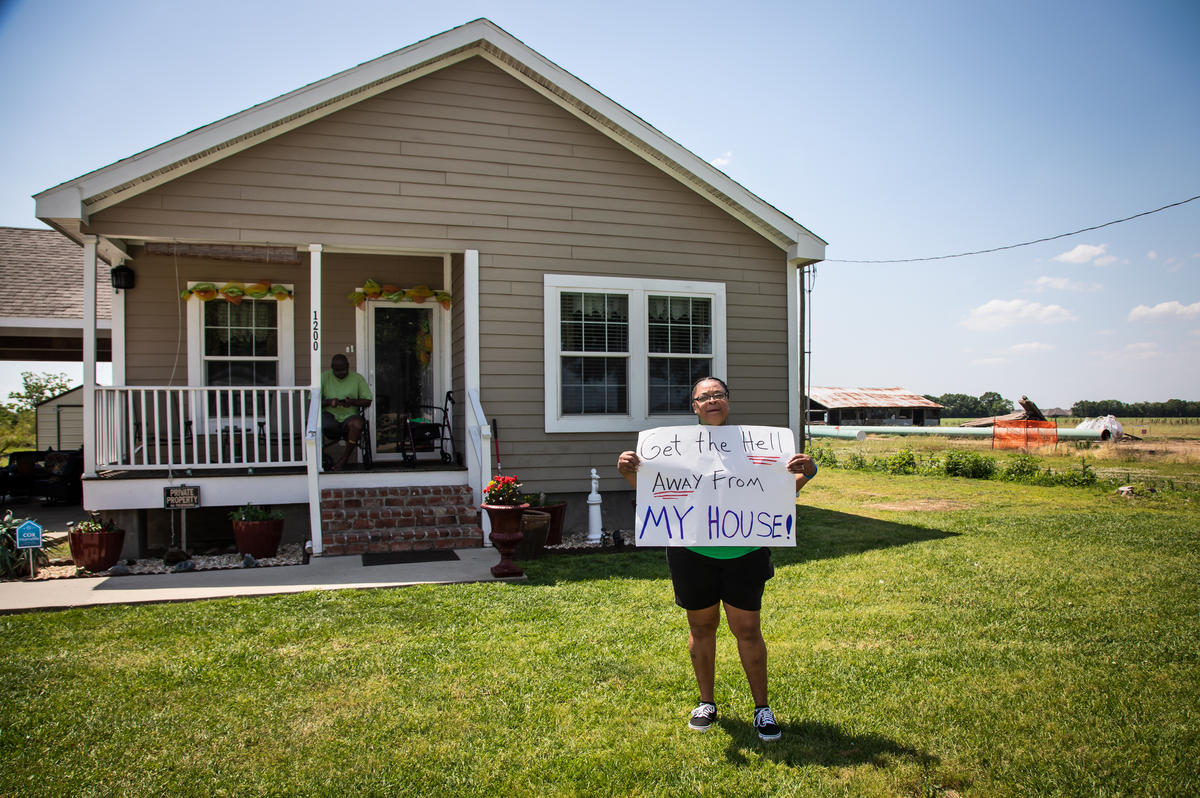
The Bayou Bridge Pipeline, another ETP project, would be built so close to Melinda Tillies’ home (pictured here) that she’s worried about her house’s foundation shifting from the impact of the drilling equipment.
In light of ETP’s ongoing disregard for human rights and its poor spill and safety record, banks should end any current financial relationship with ETP and related companies and should not provide any further financial services, including loans, to the companies.
Annie Leonard is the executive director of Greenpeace USA.

